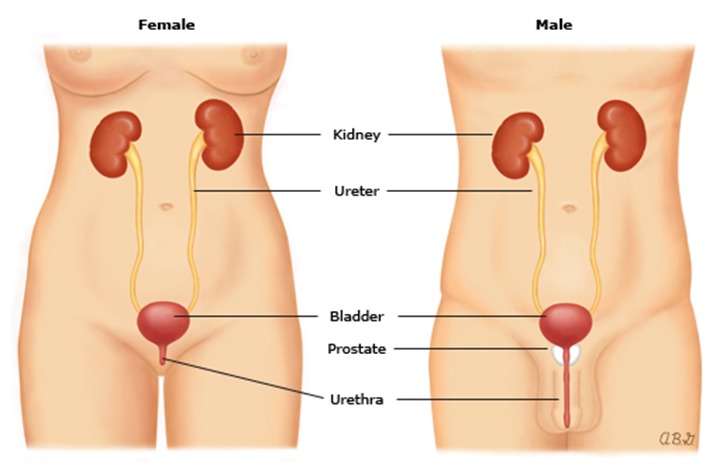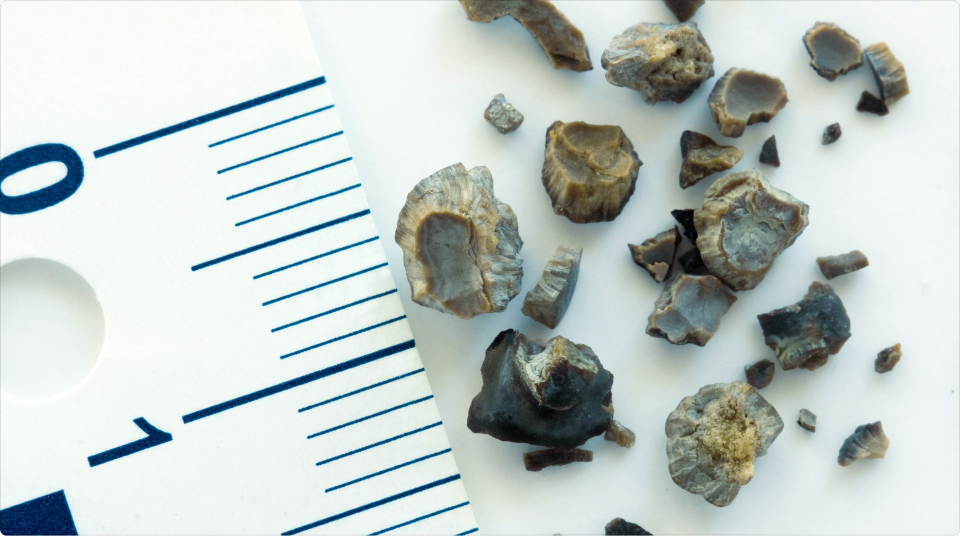What are kidney stones?
Kidney stones are hard deposits of minerals and salts that form inside your kidneys. They can vary in size, shape, and composition. Some are as small as a grain of sand, while others can be as large as a golf ball. Some are smooth and round, while others are jagged and irregular.
Kidney stones can form when your urine becomes too concentrated, meaning it has more solid substances than liquid. This can happen if you don’t drink enough fluids, if you have certain medical conditions, or if you eat a diet high in certain substances, such as calcium, oxalate, or uric acid.
Kidney stones can cause problems if they block the flow of urine from your kidneys to your bladder. This can lead to pain, infection, and kidney damage. Therefore, it is important to know the signs and symptoms of kidney stones and seek medical attention if you have them.
What are the symptoms of kidney stones?
Many people with kidney stones do not have any symptoms at all. They may not even know they have stones until they have an imaging test, such as an X-ray or ultrasound, for another reason. These stones may stay in the kidneys for years without causing any trouble.
However, some people with kidney stones do have symptoms, especially when the stones move from the kidneys to the urinary tract. The urinary tract includes the ureters, which are the tubes that connect the kidneys to the bladder, the bladder, which stores urine, and the urethra, which is the tube that carries urine out of the body. The symptoms of kidney stones include:
- This is the most common symptom of kidney stones. The pain usually starts when a stone blocks or slows down the flow of urine from the kidney to the bladder. This is called obstruction. The pain can range from mild to severe, depending on the size and location of the stone. The pain usually comes and goes in waves, lasting from 20 to 60 minutes each time. The pain can be felt in the side, between the ribs and the hip, or in the lower abdomen. The pain can also move to the groin area as the stone travels down the urinary tract.
- Blood in the urine. This is another common symptom of kidney stones. The blood may make the urine look pink or red, or it may only be seen under a microscope. The blood is caused by the stone scraping or irritating the lining of the urinary tract.
- Gravel or sand. Some people with kidney stones may pass small pieces of stones in their urine. These may look like gravel or sand, and they may have different colors and shapes.
- Other symptoms. Some people with kidney stones may also have nausea or vomiting, pain when urinating, and a frequent or urgent need to urinate. These symptoms may be caused by the stone irritating the bladder or the urethra, or by an infection in the urinary tract.
What should you do if you have symptoms of kidney stones?
If you have symptoms that you think may be caused by kidney stones, you should contact our office at ReliantHealth Primary & Wellness Care as soon as possible. We can examine you, order tests, and recommend the best treatment for your condition. Some of the tests that we may do to diagnose kidney stones include:
- Urine tests. These can check for blood, infection, and substances that may cause stones, such as calcium, oxalate, or uric acid.
- Blood tests. These can check for signs of infection, kidney function, and levels of substances that may cause stones, such as calcium, phosphorus, or uric acid.
- Imaging tests. These can show the size, shape, location, and number of stones in your kidneys or urinary tract. Some of the imaging tests that we may use are X-rays, ultrasound, CT scan, or MRI.
The treatment for kidney stones depends on several factors, such as the size, location, and composition of the stones, the severity of your symptoms, and your overall health. Some of the possible treatments include:
- Drinking fluids. This can help flush out the stones and prevent new ones from forming. We may advise you to drink at least 2 to 3 liters of water per day, unless you have a medical condition that limits your fluid intake.
- Pain medication. This can help relieve the pain caused by the stones. We may prescribe or advise you to take over-the-counter pain relievers, such as ibuprofen, naproxen, or acetaminophen. However, you should not take more than the recommended dose or for longer than advised, as this can cause side effects or complications.
- Medication to help pass the stones. This can help relax the muscles of the ureters and make it easier for the stones to move. We may prescribe or advise you to take medications such as alpha-blockers, calcium channel blockers, or nitrates.
- Medical procedures. These may be needed if the stones are too large, too many, or causing complications, such as infection, kidney damage, or severe pain. Some of the medical procedures that we may use to remove or break up the stones are shock wave lithotripsy, ureteroscopy, percutaneous nephrolithotomy, or open surgery.

How can you prevent kidney stones?
To avoid kidney stones, it’s essential to stay well hydrated with water, to dilute your urine and hinder crystal formation. Depending on your stone type and cause, dietary and lifestyle adjustments might be necessary. Here are some basic guidelines for kidney stone prevention:
- Eat a balanced diet that is low in salt, animal protein, and oxalate-rich foods, such as spinach, rhubarb, nuts, chocolate, and tea.
- Limit your intake of calcium supplements, unless we advise you otherwise. However, you should not avoid calcium from food sources, as this may actually increase your risk of stones.
- Avoid or limit your intake of vitamin C supplements, as this may increase your risk of stones.
- Maintain a healthy weight and exercise regularly, as this may reduce your risk of stones.
- Avoid or limit your intake of alcohol, caffeine, and sugary drinks, as these may dehydrate you and increase your risk of stones.
- Follow our advice on taking medications or supplements that may prevent or treat stones, such as potassium citrate, thiazide diuretics, or allopurinol.
Kidney stones are a common and painful condition that can affect anyone. However, with proper diagnosis, treatment, and prevention, you can avoid serious complications and improve your quality of life. If you have any questions or concerns about kidney stones, talk to us at ReliantHealth Primary & Wellness Care.
Your health care provider is the best source of information for questions and concerns related to your medical problem.
Click here to book an appointment, or call us now.
Further Resources:
-
National Library of Medicinewww.nlm.nih.gov/medlineplus/healthtopics.htmlNational Institute of Diabetes and Digestive and Kidney Diseaseswww.niddk.nih.govNational Kidney Foundationwww.nlm.nih.gov/medlineplus/healthtopics.html
Disclaimer:
This generalized information is a limited summary of diagnosis, treatment, and/or medication information. It is not meant to be comprehensive and should be used as a tool to help the user understand and/or assess potential diagnostic and treatment options. It does NOT include all information about conditions, treatments, medications, side effects, or risks that may apply to a specific patient. It is not intended to be medical advice or a substitute for the medical advice, diagnosis, or treatment of a health care provider based on the health care provider’s examination and assessment of a patient’s specific and unique circumstances. Patients must speak with a health care provider for complete information about their health, medical questions, and treatment options, including any risks or benefits regarding use of medications. This information does not endorse any treatments or medications as safe, effective, or approved for treating a specific patient. Reliant Physicians and ReliantHealth disclaim any warranty or liability relating to this information or the use thereof. The use of this information is governed by the Terms of Use of this website and our Privacy Policy.


